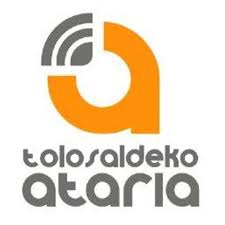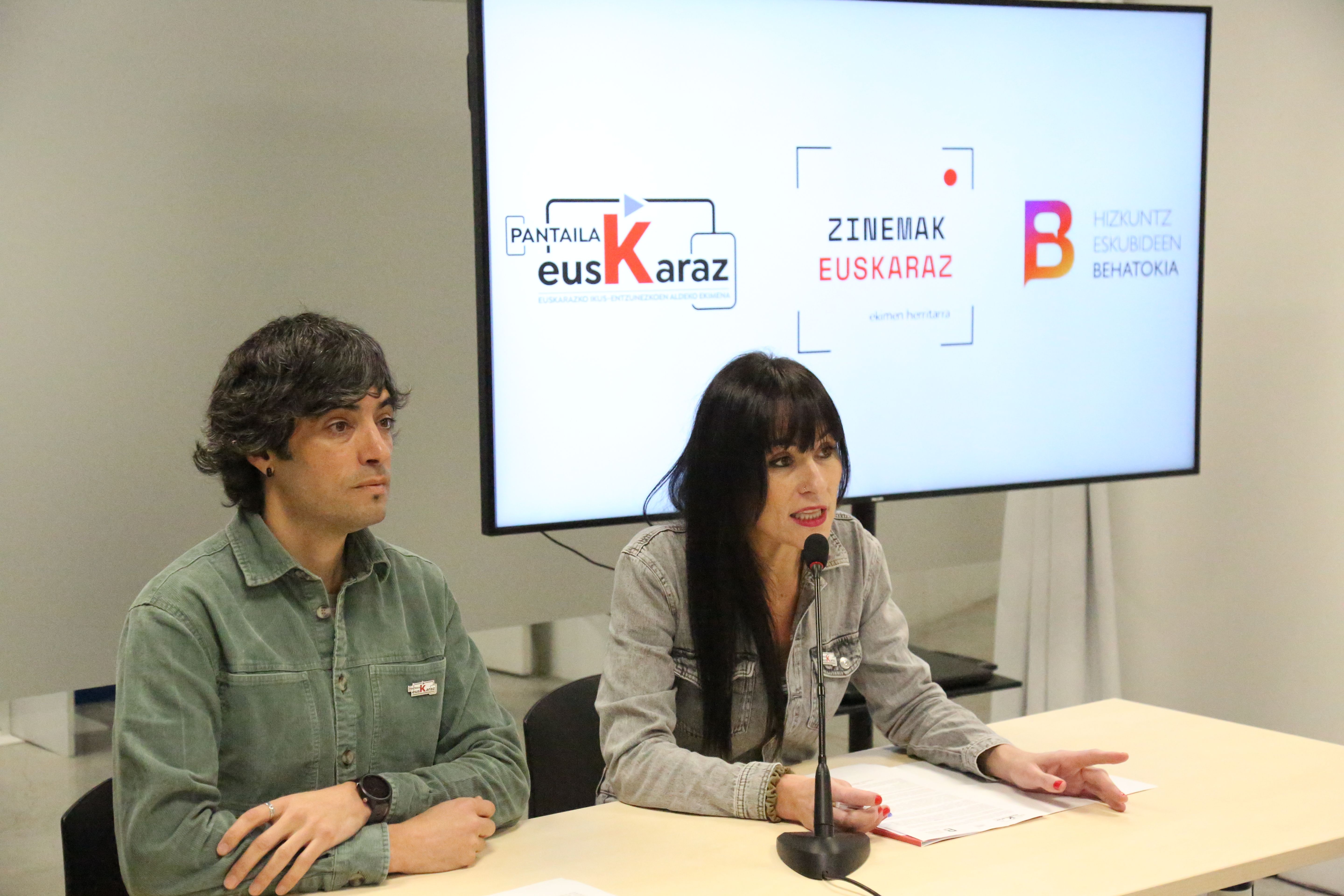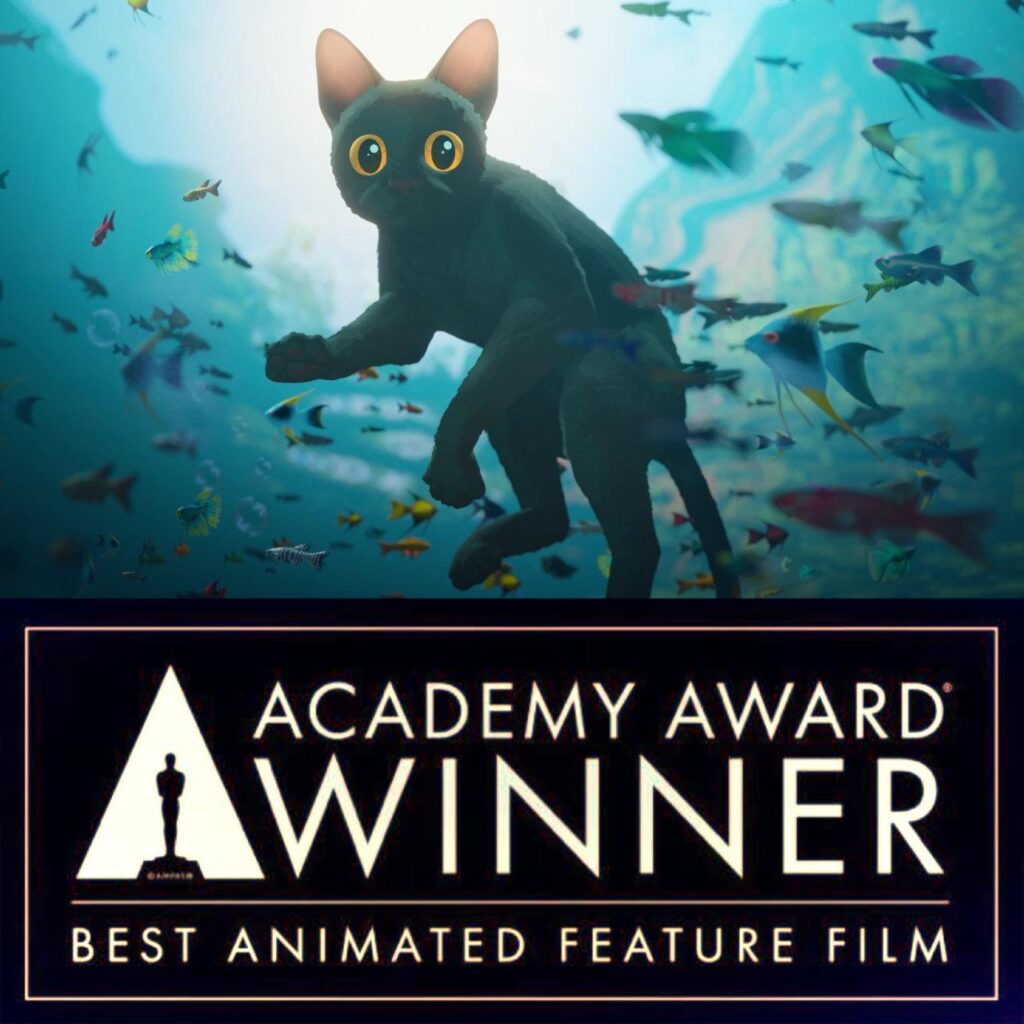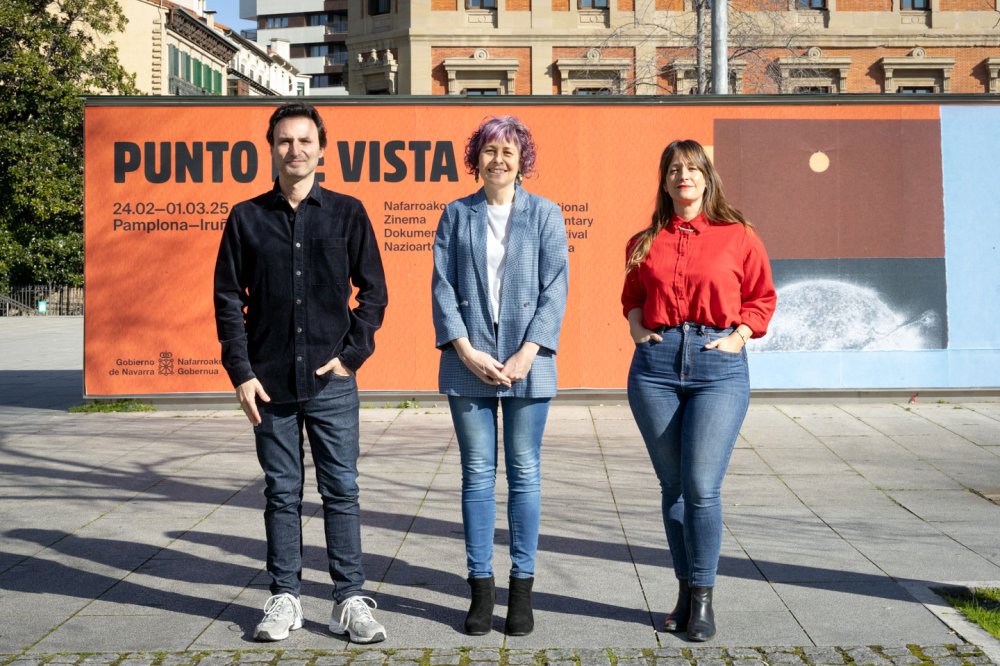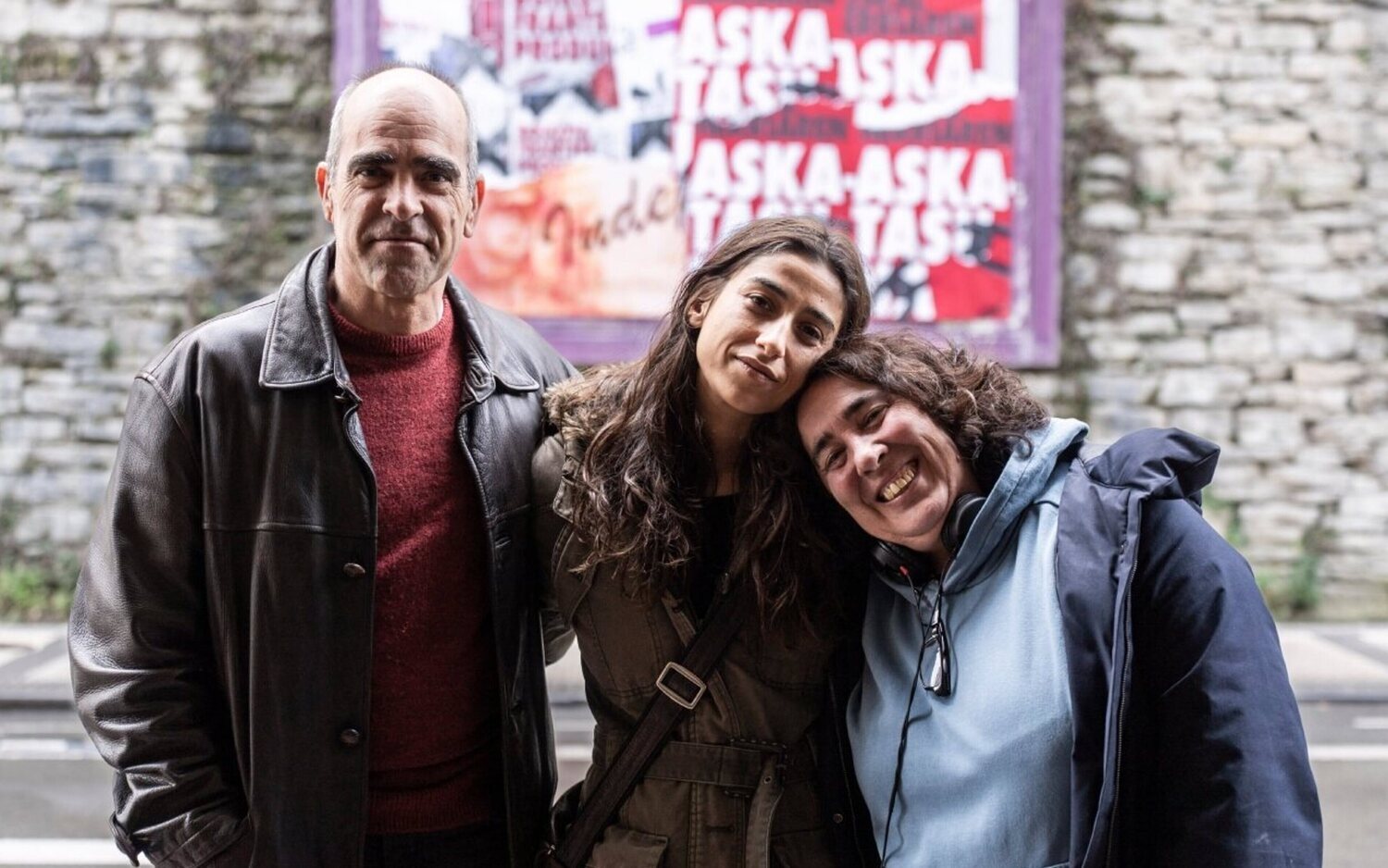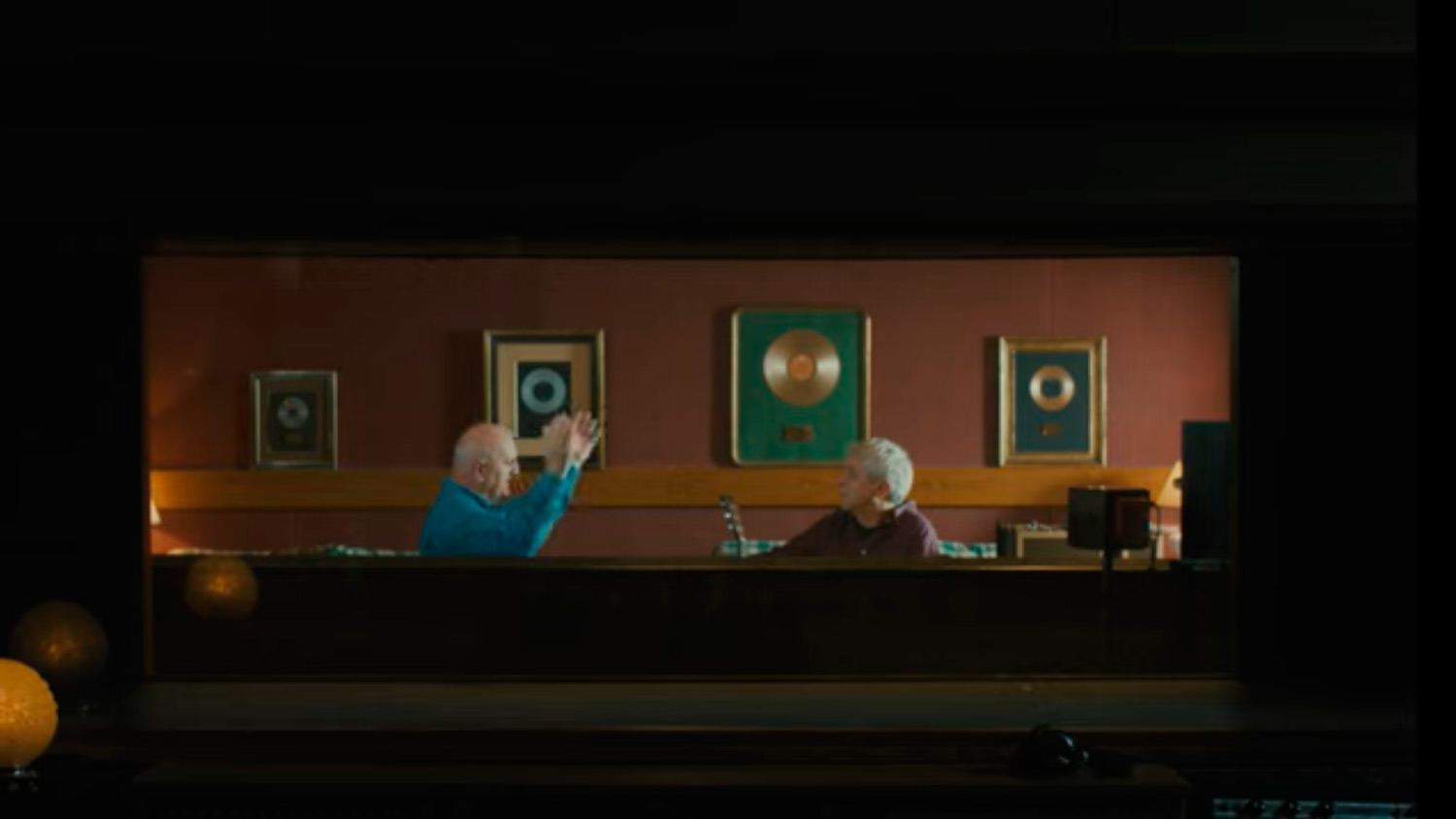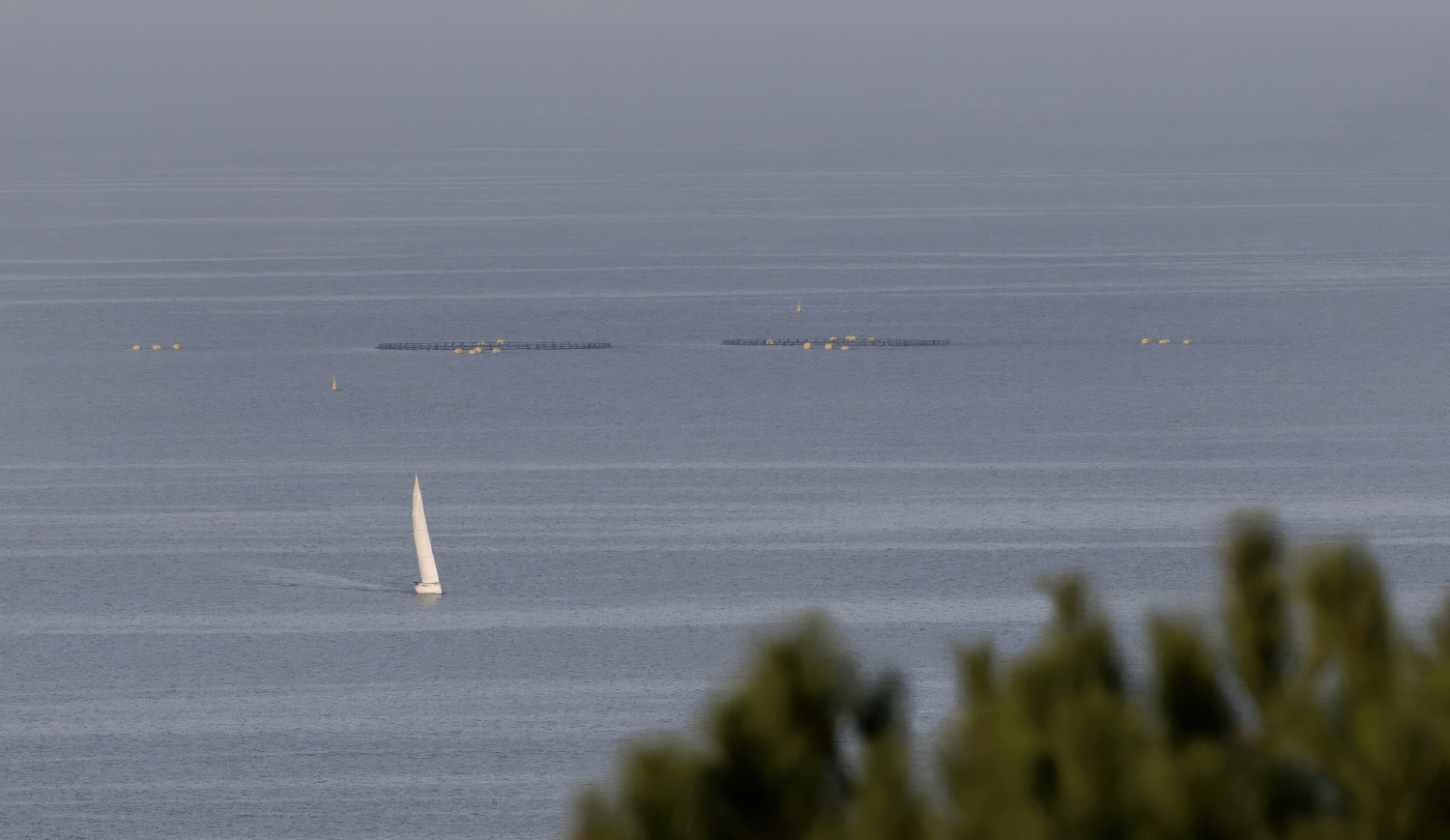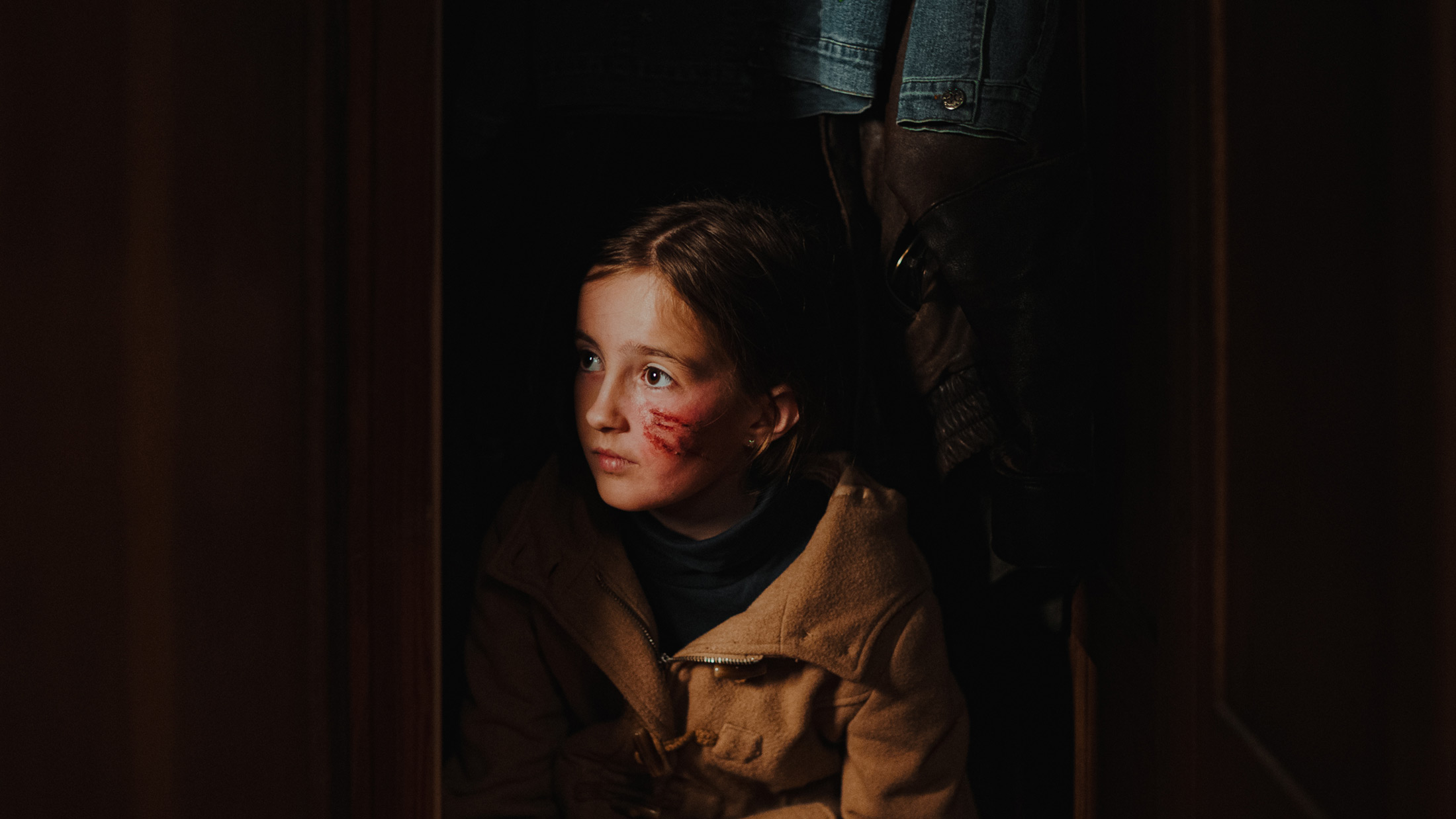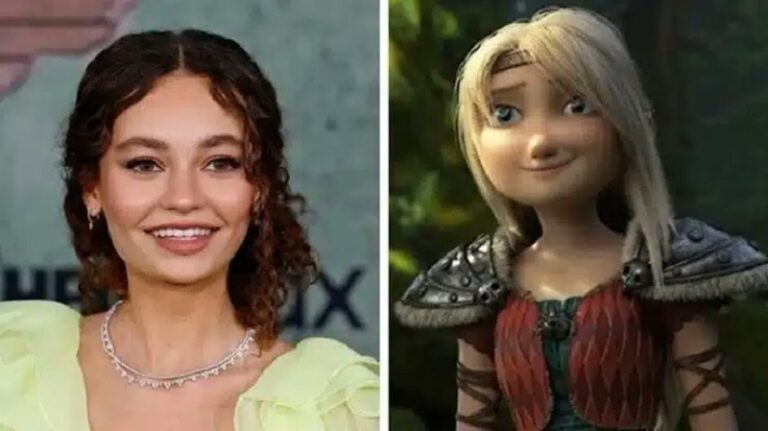"If we want to do this kind of project, we need to do it in country building."
- On October 8, filmmaker Patxi Bisquert (1952, Zizurkil) introduced the Ombuaren Itzala project. To this end, it aims to sell 30,000 tickets to ten euros. We have met him to talk about his project, his culture and his trajectory, in Errotz (Navarra), where he currently lives.

Two or three weeks ago you presented the project 'Ombuaren itzala', in the midst of the pandemic. How has this unforeseen influence on the forecast?
A lot, it's delayed us almost all year long. The idea was to hold a press conference in the spring, just as we entered the pandemic. Then I got back on track a little bit. After the lockdown, the summer came soon and the presentation was postponed until October.
During these weeks I have worked hard on the dissemination of auzolan: I have walked through Bizkaia; I have done almost all of Navarre, I only need the Pamplona Basin to finish; in Gipuzkoa, I lack the valley of the Deba and part of the coast of the Urola; in Álava, I have Vitoria and Llodio left; and then, in Iparralde, I have a friend who works from Hendaia.
We will carry out the process in three trips by the peoples: the first is what I am doing now; the second is giving lectures; and the last is to offer the citizens the film Ombuaren itzala. I have calculated that by June we will be preparing a hundred talks in the Basque Country.
And when are the speeches going to start?
Then we started. We will use it to give lectures and, in passing, meet with other agents; also to be with those who, through the Law of Patrons, are going to enter money. They must be treated in a personal way. They must be informed of the formalisations and rules they have to comply with in order to receive the aid, as they contribute through tax relief and special steps must be taken.
Do you think that the Patronage Act will help people make their contribution?
Explaining things clearly, yes. After all, there is no money to be taken out of the pocket, it is a means of enabling the Treasury: to allocate a percentage of the taxes paid each year to a cultural patronage.
Today, we have great difficulties in getting this type of project through. Big television platforms, big producers, are not interested in these kinds of stories, and if we want to make them, they need to become popular.
The pandemic has made the situation of body builders more visible than ever before. Do you see the need to value the cultural sector, both from the administration and from society?
I think so. At the time of the pandemic, what culture was to be enjoyed at home? How many books would have been read that hadn't been read? Or how many movies to watch and how many music to listen. The whole industry is subsidised, subsidised. It lacks culture, it lacks culture.
I believe that our film is not sufficiently propelled, neither in Euskal Herria, nor in Spain, nor in Europe in few parts. For example, in the Basque Country, the number by the Basque Government is decreasing. For example, there is an agreement with the Basque producers to produce with them a percentage of the television budget, but it is not complied with: the agreement is there, but how much is spent each year?
In the 1980s, there was more sensitivity. The Basque film then gave many titles, very good. But today, for example, if you go to a producer with a movie like Tasio, you'd throw it away. There are only two or three producers who dare to carry out this type of project, there are very few, and budgets are usually smaller for this type of project.
Where culture is a little defended, for example in France, you can see the charm of cinematography. This should also be seen here.
The idea is to sell 30,000 tickets to ten euros. What reception is the project having?
We plan to sell 30,000 tickets and get 300,000 euros with them. Through the Patron Law, we see the possibility of drawing EUR 200,000. With that, and with the contribution that Euskal Telebista then makes… with everything, I think we will approach 600 or 700 thousand euros.
I have been with many municipalities, and all those I have done so far have said that they will cooperate with the auzolan. All we ask is for them to organize a conference, I would go to give that conference and right there we would start selling tickets. The intention is to maintain the experience of the auzolan with magazines, radios, etc. of each place, as the work will take at least two years until the premiere of the film.
The federation of ikastolas, Bertsozale Elkartea, the coffee theaters, -- I've been with many, and they've all said: "Yes, we'll let you know." So if we mobilize all of them, we think we're going to sell those tickets. Most people in the world of culture don't go well in their pocket, but they have relationships and they're going to do a really nice job. For example, how many people move the Bertsozale Association in the Basque Country? It moves a lot of amazing people. It occupies BEC. Accustomed to popular construction, they can contribute a lot to the dissemination of auzolan. I hope that will be the case.
And then our people also don't leave behind the people who loved him, and Pello Mari Otaño has been very much loved, admired; not only among the experts, he has been a very popular person.
In Barcelona, Madrid and Galicia it has also been interested in communal work and, at least, it will extend to these three places.
The support of local actors is necessary; it is essential.
It's a pretty challenge.
It's a beautiful challenge, but it needs a lot of work. A lot of work and a lot of words. I particularly call on young people: Pello Mari Otaño was very modern, totally modern at the time, and that's what they have to do with this week's program.
This script covers the period of 1890-1910. Those 20 years were surely the most fruitful of Otaño, but apart from that, they were years of change in our society: socialist ideas, Basque sovereignty -- and not patriotism -- Surely as important as those who had 60 years later: a time of recovery. Even today, I'm thinking that we're not in the same trance, because history gives cycles.
And it's a shame that young people don't know Otaño, because there's a lot to learn from her attitude and her writings. Despite the fact that the new generations are rather forgotten, I believe that their shadow is still great in the Basque Country. It was very important in its day, and that has set a good record in our society, and that's why I think we'll get a good deal.
What does anyone who wants to contribute have to do?
We will launch the web Pello Mari Otaño, named 'auzolana'. The contribution can also be made through Patronage: I contact and will respond to all and all through the channels that appear in the triptych information.
There may also be other forms: for example, “Here we have a beautiful artist and he has given us a sculpture; and we will draw a draw at Christmas.” And what comes out for auzolan. For small businesses it can also be a good opportunity to advertise: Those who deposit more than EUR 2,000 will be credited. Many people will see it and support a cultural work.
But all neighbours will have a gift, including those who buy tickets of ten euros. In the end it's like choosing a movie to go to the movies, buying a ten-euro ticket, but more is done at once. It's not just a movie entry, they do a huge job of making this happen. They will be producers of the film.
The intention is that the film be concluded for the San Sebastian 2022 Film Festival.
Yes, and we'd like to introduce it to co-workers. We have already started and we will continue to move forward. The two-year deadline may be short, but I am still confident.
This is a project that you have been in your hands for a long time and that has had an evolution. When and how did it start and what path did it take?
Twelve or fifteen years ago, I thought I could do something about Otaño.
I've always felt that love for Otaño, ever since I was young. I remember when I was in the Jaizubia farmhouse in Hondarribia, I was a christening or a new cider, there was always some excuse to sing. Two cousins of the mother were bertsolaris, both of the same name, plus, Marcelino. They would start to worry, and they would warm up the gorges with the Otaño coplas, and I liked them. We were all singing.
Later, when I was in Galicia, I started reading more about it, and I contacted the Hernandorena Cultural Association of Zizurkil. I found out that they had published a beautiful book, and I read that book, and I saw that there was the story, very interesting. In his day there were few fuerist liberals, Bilintx and he were the ones who had a little fame; it was rare, in the Basque environment the majority were Carlists, the majority Bertsolaris. It's weird, it's weird, it's weird, it's weird, it's weird, it's weird, it's weird, it's weird, it's weird, it's weird, it's weird, it's weird, it's weird, and those who are weird bugs have always loved it.
Koldo Izagirre is my friend, and I said, “Why don’t you prepare some texts and start doing something about Otaño?”
He mentioned the Hernandorena Cultural Association. Has Hernandorena been the main source of research for the script?
Yes, mostly yes: Joxin Azkue, from Hernandorena, sent me everything I needed. I think I have read the majority or everything that has been written about Otaño; I do not know if I lack anything.
Are the technical equipment and casting complete?
No. As for the technical team, I have the majority of the names in mind and I have already spoken to some: Javier Bilbao, Alazne Maturana.. They agreed, but since this recording has its peculiarities, as you know the dates, we will know whether or not you can. Surely we will not be able to record the whole movie below. It may be a small but professional group and the best in Euskal Herria: that certainly. We have also talked to some actors: Getari Etxegarai, Jox Berasategi, Itziar Atienza Otaño will be me.
In Euskal Herria, we have good professionals and, in addition, they are humble people. If you like the project, you get in full, we have people like that, and it's to applaud.
So we will see Patxi Bisquert again on the big screen.
Yeah, you'll see me. In recent times you have not seen me too much, and I will use it to do this role of Otaño. Other characters don't give me that much security, but this does give me more security.
One of the intentions is to record in Argentina.
It's the biggest part: we calculated three weeks and here, two: five weeks of total shooting. What we in Argentina have to do is continue. We will make external recordings, especially there. It is a programme of conferences that will last until June and will be transferred to Argentina during the summer with a small team. Then we'll bring this material here and set up some sequences to offer the first images and reinvigorate the auzolan.
The Basque people there also know the project, don't they?
We ask the Basque centers in Argentina to cooperate during the group's stay there, for meals, transportation and accommodation; that is, that the Federation of Argentinian Basque Entities take care of it. The Basque Centre Laurak Bat in Buenos Aires is located in the large building, they have impressive offices, and if they make recordings inside, we will ask them to do so right there. That's what we're asking: not money directly, but help the team.
You will also record it here: Zizurkil?
Yes, we're sure to record something in Zizurkil. Not perhaps in the middle of the village, but in the village. There is a sequence that joins the blind from Otaño Aduna, which we will do in Zizurkil. He will be my daughter, Kandela, who lives in Galicia.
And coming back to the accounts of Argentina, you will also have to look for an ombure...
Of course! We'll look for the most beautiful ombu.
The first offer to work in the cinema came by surprise.
Yes. I would never have thought I would make a movie: I've always been a great filmmaker, but I wasn't curious to start making it. I was working at a factory in Vitoria, and they called me to tell me that they were going to make a film about the escape of Segovia, which Imanol Uribe wanted to put the fugitives in the film. I wanted to put three or four, and one of them was because my photo was taken in a newspaper on the occasion of a book that Angel Friend took me out.
I went to Donostia to cast, no idea what it was. They gave me a little piece to read it, and once I had the test, they told me to go see the director. "Do you want to be Mattin?" he asked, and I asked. "You put what you were doing in jail." To sign the contract, I was told to go to the production manager: "Contract and everything?" I said, "If I already have a contract at the factory." Not doing anything yet and offering money!
I rolled for about a week. I made the film, and then I quit the job, and I was selling books for a couple of years. At that time I went to live in Zalduondo: I set up a small farm, with chickens and rabbits. While he was there came Angel Amigo, who was going to make a film: The conquest of Albania. And I answered him. 'We are going to conquer Albania'. But you had to be on the farm every day! My brother was unemployed in Eibar: I called him and asked him if he wanted a farm. My brother came to Zalduondo and I went to the Bardennes to conquer Albania.
And before I finished, there came the offer for the aquelarre; and while I was doing the akelarre, they called me for the Tasio, and so, suddenly, one thing brought me to another, but without me thinking about it, without thinking on any occasion.
How things are... and now, look: to produce a feature film!
You mentioned the flight from Segovia. Beyond the film, the real escape followed closely: Did you participate in it or in your organization?
On both things: I worked inside and outside. In the first attempt, I worked in the same hole in the technical team, which he went to take from the stern. Then we started to sink in. After killing a lot, they took me out of jail with the king's pardon. When I was already on the street, I had a quote with the command I was going to go there; it was in Tolosa. They didn't find the entrance of the hole, it was about 600 meters from the jail, and I explained to them with the blueprints where I was. They wanted to take me there, but the danger was great, if any official saw them. Later, walking around Vitoria, I found out that they had left Segovia; luckily, they found the entrance.
Especially in the 1980s, you gained a great awareness. What was it like to have a reputation that surprised you?
He came straight away, but he wasn't that young. He was 29 years old on the flight from Segovia; 32 years old at the time of Tasio. The weirdest thing was in Tasio's time: in all the bars they shouted "Tasio!". On the other hand, however, I am very pleased because it opened up a new path for me.
You have also lived in Galicia for many years and there you have also worked in audio-visual.
Yes. When I was there, they didn't call me much to work; A crumble, Cell 211 and bread crumbs, those feature films; I did the El Faro TV series for the FORTA, and some shorts too.
There I created this production company that I have now. Art. Solar I had a cider in Galicia, called Casona Eguzki Art, and I gave the same name to the producer: Eguzki Art Zinema. In total I have done three works in this producer: The short film Terra do Millo, an exercise in memory, texts by the writer Emilio Araúxo and the Félix de Maceda focused on the characters of the Carnival and two works commissioned: one for a company of warehouses and another for the Galician council of Parada de Sil.
And the fourth, the one that comes, the first feature film and how about: Shot in Argentina and here, the story of an era,... In what salsa we got into!
Pantailak Euskarazek eta Hizkuntz Eskubideen Behatokiak aurkeztu dituzte datu "kezkagarriak". Euskaraz eskaini diren estreinaldi kopurua ez dela %1,6ra iritsi ondorioztatu dute. Erakunde publikoei eskatu diete "herritar guztien hizkuntza eskubideak" zinemetan ere... [+]
Geroz eta ekoizpen gehiagok baliatzen dituzte teknologia berriak, izan plano orokor eta jendetsuak figurante bidez egitea aurrezteko, izan efektu bereziak are azkarrago egiteko. Azken urtean, dena den, Euskal Herriko zine-aretoak gehien bete dituztenetako bi pelikulek adimen... [+]
Otsailaren 24tik eta martxoaren 1era bitartean, astebetez 60 lan proiektatuko dituzte Punto de Vista zinema dokumentalaren jaialdian. Hamar film luze eta zazpi labur lehiatuko dira Sail Ofizialean; tartean mundu mailako lau estreinaldi eta Maddi Barber eta Marina Lameiro... [+]
A conference for architects has just been held in Madrid to discuss the crisis of the professional architect. They have distinguished the traditional and contemporary way of being an architect. What is traditional? From the epic architect who appears in The Brutalist, where... [+]
Itoiz, udako sesioak filma estreinatu dute zinema aretoetan. Juan Carlos Perez taldekidearen hitz eta doinuak biltzen ditu Larraitz Zuazo, Zuri Goikoetxea eta Ainhoa Andrakaren filmak. Haiekin mintzatu gara Metropoli Foralean.



